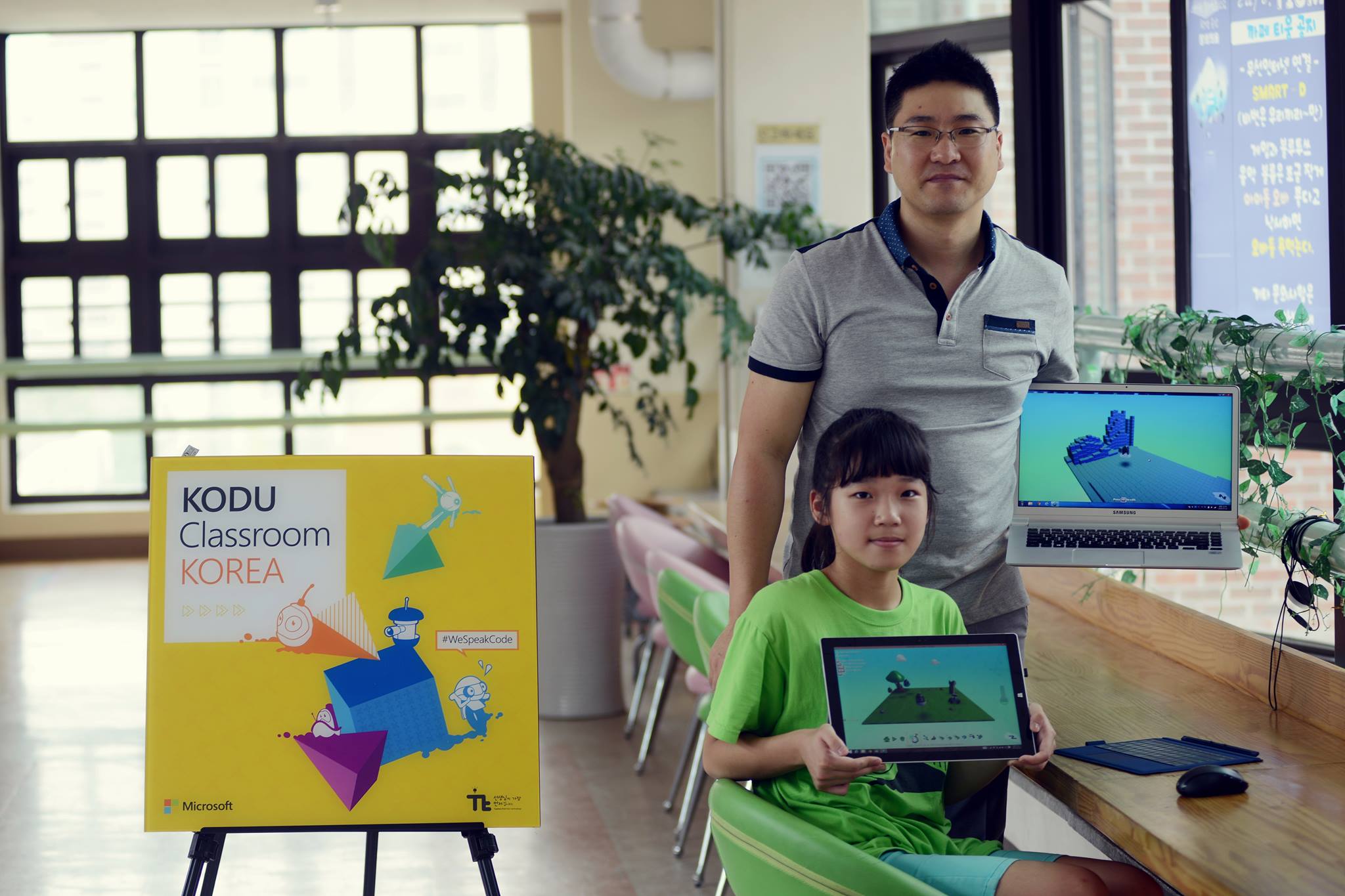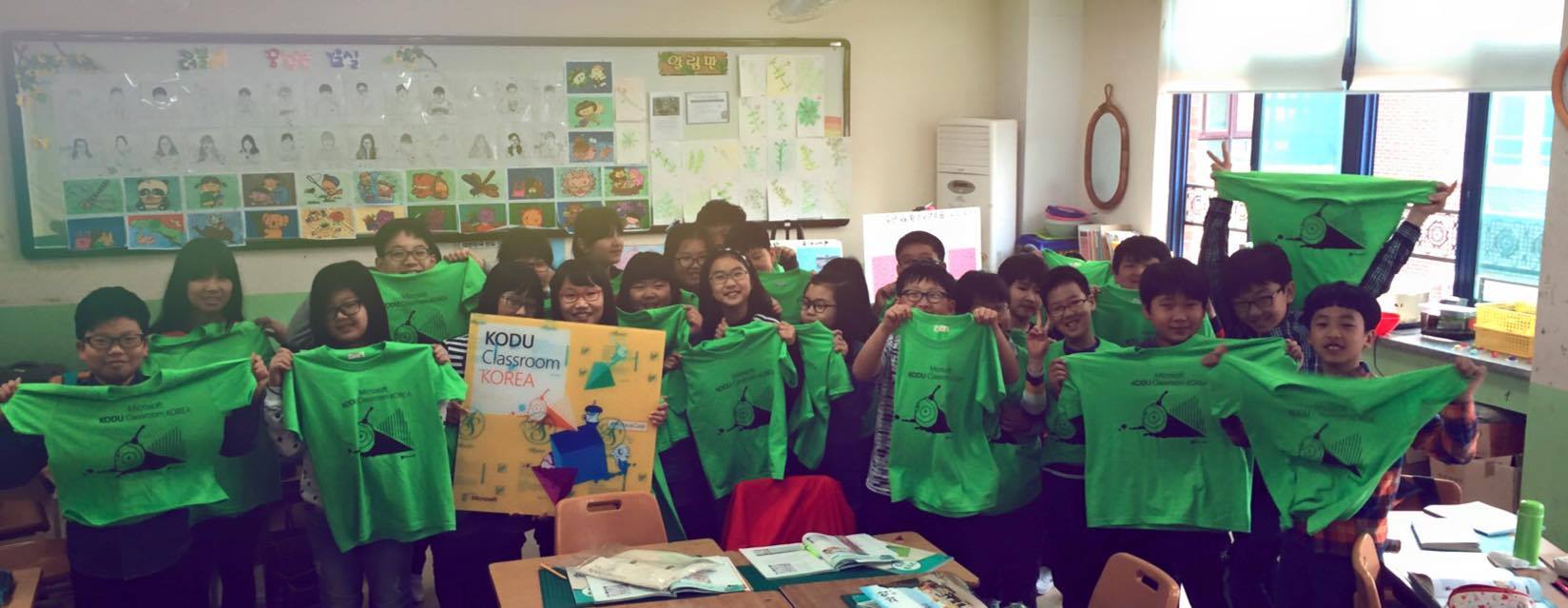Using Kodu Game Lab to Bring out Creativity in Students
This is part of a series of Educator in Tech profiles, where we share inspirational journeys and learnings from educators who are using code and other technologies to engage their students.
[caption id="attachment_14607" align="aligncenter" width="666"] Youngsang Cho, an elementary school teacher in South Korea, said Kodu Game Lab enabled young students to use their imagination to create their own worlds through code.[/caption]
Youngsang Cho, an elementary school teacher in South Korea, said Kodu Game Lab enabled young students to use their imagination to create their own worlds through code.[/caption]
When in middle school, Youngsang Cho often sought out his music teacher for advice. It was this teacher’s wisdom and passion for teaching that inspired Youngsang to become an educator. Though in deciding on his teaching focus, it was Bill Gates and Mark Zuckerberg that the elementary school teacher turned to as role models.
Youngsang explained, “I believe that computer skills and coding will become an important part of the lives of young South Koreans today, regardless of the career paths they choose. My goal is to provide them with the learning opportunities that will allow them to explore their own interests and make a contribution to the world.”
His sentiments can be felt more broadly on the national level. In 2014, the Korean government announced that computer programming shall be integrated into the school curriculum starting from 2018. Computer science is now seen as being key to encourage creative thinking among young people.
Youngsang now has more to cheer about, as Microsoft Korea has stepped up its efforts to support educators in coping with the impending curriculum changes. He was part of a recent nationwide Virtual Collaborative Classroom held in April, during which 2,300 students created games collaboratively using Microsoft Kodu Game Lab.
[caption id="attachment_14617" align="aligncenter" width="782"] The Virtual Collaborative Classroom event in Korea was a roaring success, attracting 2,300 students to create games collaboratively using Kodu Game Lab.[/caption]
The Virtual Collaborative Classroom event in Korea was a roaring success, attracting 2,300 students to create games collaboratively using Kodu Game Lab.[/caption]
“Teaching code at an elementary school is not an easy task! Kodu Game Lab is unique in making code easier to understand, and it’s a great platform for students to learn the basics of coding to create their own worlds. The students came up with many amazing creations and demonstrated a creative flair beyond my expectations,” Youngsang said.
Today, Youngsang is part of the Microsoft Innovative Educator Expert (MIEE) programme, an international network of educators using technology to improve learning outcomes. The programme provides him with access to professional development opportunities and product-testing invitations, enabling him to stay at the forefront of educational innovations.
What advice does Youngsang have for other educators? “Start by encouraging your students to take a storytelling approach to develop and organise their ideas, before exposing them to the more technical aspects of coding. Once the students have organised their ideas and crafted their own stories, the coding process then becomes more enjoyable and enriching.”
Comments
- Anonymous
September 20, 2015
The comment has been removed - Anonymous
September 22, 2015
Thank you, JP Park, for pointing out the correct year - it is now updated in the post. Glad you find Mr Cho inspiring - we do, too, and bet his students do as well! -- from the APAC Citizenship Team